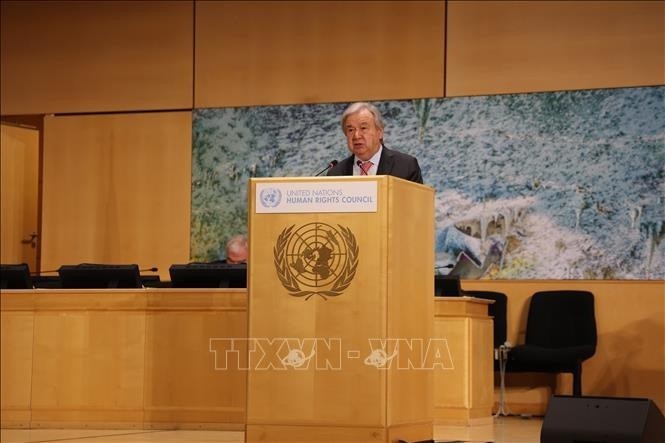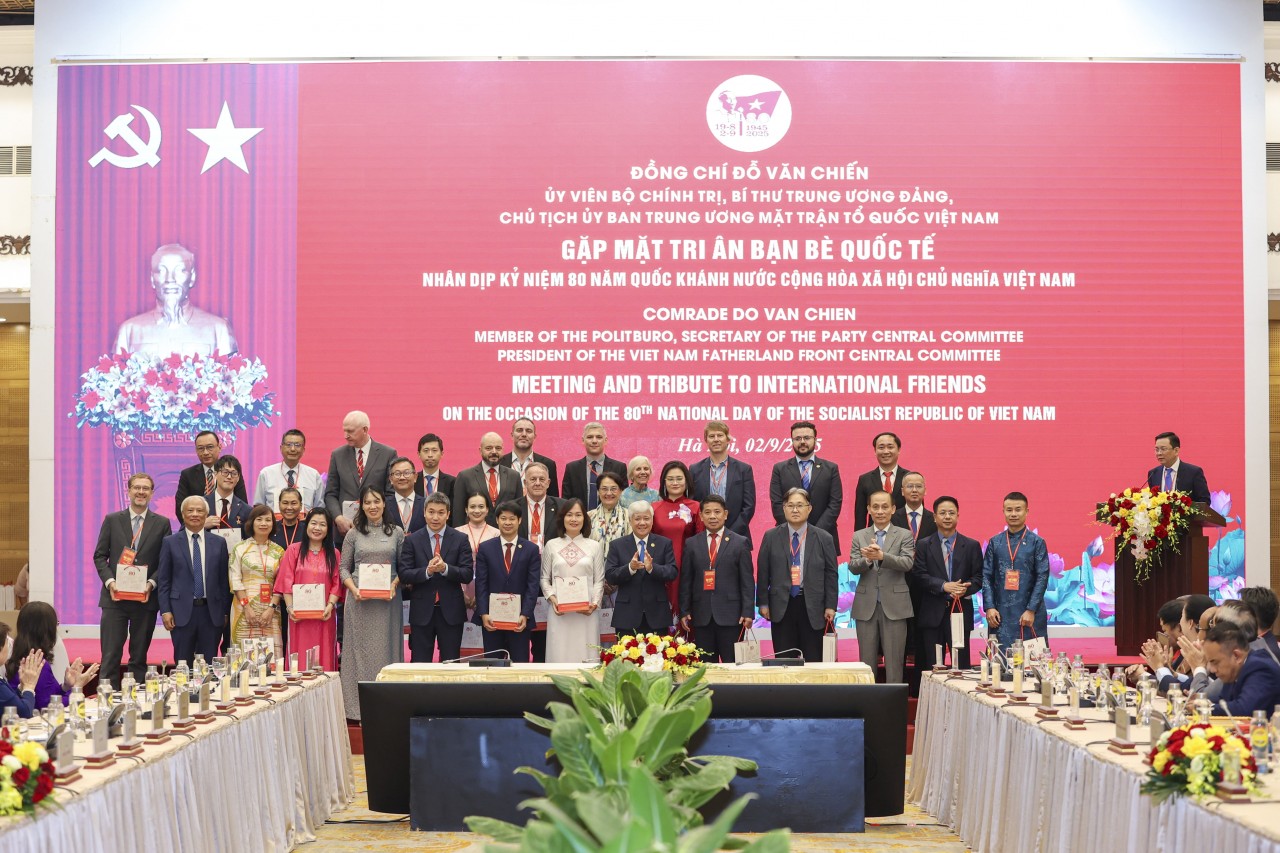Viet Nam Union of Friendship Organizations and Ensuring of Human Rights in Viet Nam
| Vietnam Re-Elected to the United Nations Human Rights Council for the 2026–2028 Term | |
| Vietnam Re-Elected to UN Human Rights Council: Highest Recognition from International Community |
Human rights are a universal category, a shared value of humankind and also a fundamental objective of nations in their struggles for peace, democracy, justice and social progress. On 10 December 1948, the United Nations General Assembly adopted the Universal Declaration of Human Rights (UDHR), whose preamble clearly states: "Whereas recognition of the inherent dignity and of the equal and inalienable rights of all members of the human family is the foundation of freedom, justice and peace in the world.” According to the Office of the United Nations High Commissioner for Human Rights, “Human rights are universal legal guarantees that protect individuals and groups against actions and omissions that interfere with fundamental freedoms, entitlements and human dignity.”
Ensuring human rights is a concern shared by both the international community and every individual nation. The goal is to meet domestic requirements, fulfilling commitments to one’s own people to maintain political and social stability, while also meeting external requirements through the implementation of international commitments each country has signed and joined. To date, the United Nations and international human-rights mechanisms have promulgated nine core conventions and 30 declarations, recommendations, codes and principles related to human rights, of which Viet Nam is a member to seven out of the nine conventions [1].
However, human rights are also a historical category that bears deeply rooted class-based, political and social characteristics. Issues concerning human rights and the ensuring of human rights differ among nations and peoples, depending on their political systems, ideologies, democratic values, socioeconomic development levels and cultural traditions across countries, peoples and regions worldwide. This leads to human rights becoming one of the most sensitive and contentious issues on international forums and within the United Nations, directly influencing the foreign relations of countries bilaterally and multilaterally. Reducing differences and disagreements, promoting understanding and sharing common ground among nations, and ensuring that partners and friends understand the particular values of each country in matters of ensuring human rights are essential tasks for all forces engaged in foreign affairs work—and Viet Nam is no exception.
In Viet Nam, the ensuring of human rights has been a matter of concern for the Party and the State since very early on. From the earliest days of the revolution, with the slogan "land to the tiller", "everyone has food, clothing and education", the Communist Party of Viet Nam set the highest goal of the national liberation revolution as attaining independence and freedom for the country, ensuring happiness and prosperity for the people.
Throughout different stages of the revolution, the Party’s guiding viewpoint on human rights has become increasingly developed and coherent, expressed in Party Congress documents, in various directives and resolutions dedicated to human rights and the ensuring of human rights. The Party affirms that “human rights” are always closely linked with “citizens’ rights,” and that “the State promulgates laws to define citizens’ rights and human rights,” institutionalizing directives and resolutions related to ensuring human rights in the Constitution and the legal system. From the first Constitution in 1946 to the 2013 Constitution, the provisions on citizens’ rights have steadily advanced, and laws concerning citizens’ rights have been progressively improved.
The Party and the State have always recognized the crucial role and strength of the people in the revolutionary cause: identifying “the people as the central subject in the cause of national construction and defense,” and affirming that “human beings are the center, the subject, the primary resource and the goal of development”; that “all policies must truly stem from the lives, aspirations and legitimate rights and interests of the people, putting the happiness and prosperity of the people as the ultimate objective.” The State is to be “of the people, by the people and for the people,” practicing socialist democracy through the mechanism of “the people know, the people discuss, the people do, the people check,” and more recently “the people monitor, the people benefit.” The “satisfaction of the people” is used as an index for evaluating the performance of state agencies, and the happiness of the people is regarded as the central measure of the country’s development. These principles form an important orientation and a guiding compass for the ensuring of human rights in Viet Nam.
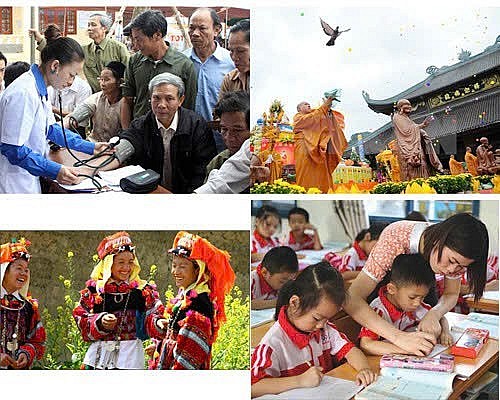 |
| Vietnam has gained many achievements in ensuring human rights. Photo: Central Theoretical Council |
In recent years, Viet Nam has achieved significant accomplishments in ensuring human rights, affirming the superior values of socialist human rights under the leadership of the Party. Civil and political rights; economic, cultural and social rights; the right to freedom of belief and religion; and the rights of vulnerable groups in society are fully respected and protected by law. The country’s development achievements over the past 80 years, especially throughout 40 years of Doi Moi, provide vivid and concrete evidence of the progress made in ensuring human rights in Viet Nam.
From a war-torn nation that suffered decades of embargo and isolation, Viet Nam has emerged from socioeconomic crisis and is becoming one of the fastest-growing economies in the region and the world. Viet Nam’s per-capita income has risen from about US$100 per person in 1986 to US$4,700 per person in 2024, elevating the country to the 33rd-largest economy globally with an economic scale approaching US$500 billion. The poverty rate has dropped dramatically, from 70% in 1986 (using the previous criteria) to just 1.93% in 2024 (based on the new multidimensional poverty standard). The Government of Viet Nam is accelerating the “Program to Eradicate Temporary and Dilapidated Housing” for the people, striving to complete nearly 300,000 housing units in 2025. Poverty-reduction efforts have made major breakthroughs; the quality of healthcare and education has improved; life expectancy has increased; and the Human Development Index (HDI) remains among the higher groups globally. The average life expectancy of the population has risen significantly, from 62 years in 1990 to 75 years in 2024. Viet Nam’s HDI has increased by nearly 50% since 1990, from 0.492 to 0.726 in 2022, placing Viet Nam among countries with high human development. The primary-school attendance and completion rate has reached 92.08%, ranking among the highest in ASEAN. The overall school attendance rate for children stands at 91.7%. Gender-equality efforts have achieved notable progress, with a rising number of women participating in politics. The 15th National Assembly includes 151 female deputies, accounting for 30.26%. Groups requiring priority protection, such as women, children, the poor, the elderly, persons with disabilities and ethnic minorities, receive special attention from the Party and the State through policies and legal frameworks dedicated to ensuring human rights.
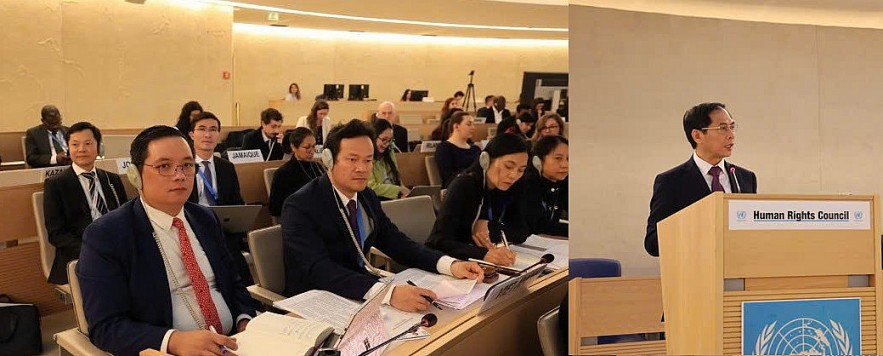 |
| The Vietnamese delegation attended the 58th session of the United Nations Human Rights Council in Geneva, Switzerland (Photo: VNA) |
The socioeconomic development achievements associated with ensuring human rights in Viet Nam have been recognized by the international community. Viet Nam is a reputable member of many international human-rights forums and has continued to be elected to the United Nations Human Rights Council for the 2026-2028 term, demonstrating global acknowledgment of the country’s progress in ensuring human rights.
Viet Nam Union of Friendship Organizations and the ensuring of human rights in Viet Nam
In recent years, the Party and the State of Viet Nam have always regarded human-rights work as a matter of strategic importance, mobilizing the participation of the entire political system, all levels and sectors, and the population, including agencies engaged in foreign affairs and people-to-people diplomacy. Political and social organizations and mass associations entrusted by the Party and the State within the Viet Nam Fatherland Front system, among them the Viet Nam Union of Friendship Organizations and its member associations, have actively participated and made important contributions to ensuring human rights in Viet Nam.
Stemming from the characteristics of people-to-people diplomacy, being a flexible, soft channel of external relations that reaches “from heart to heart,” representing the voice of the public, the forces engaged in people-to-people diplomacy, including the Viet Nam Union of Friendship Organizations, have actively contributed to ensuring human rights in two main directions:
First, carrying out the mobilization of resources and international partner support to contribute to ensuring human rights. The Viet Nam Union of Friendship Organizations has played a key role in mobilizing international friends and foreign non-governmental organizations to provide aid and funding for thousands of projects and non-project activities, with annual disbursements reaching around US$300 million. According to preliminary statistics, from 1989 to the present, foreign non-governmental aid mobilization has amounted to about US$6.3 billion, supporting essential sectors such as healthcare, education, environmental protection, war-consequence remediation, gender equality, poverty reduction and livelihood creation for the population, especially vulnerable groups, including victims of Agent Orange, mines and unexploded ordnance (UXO), and persons with disabilities.
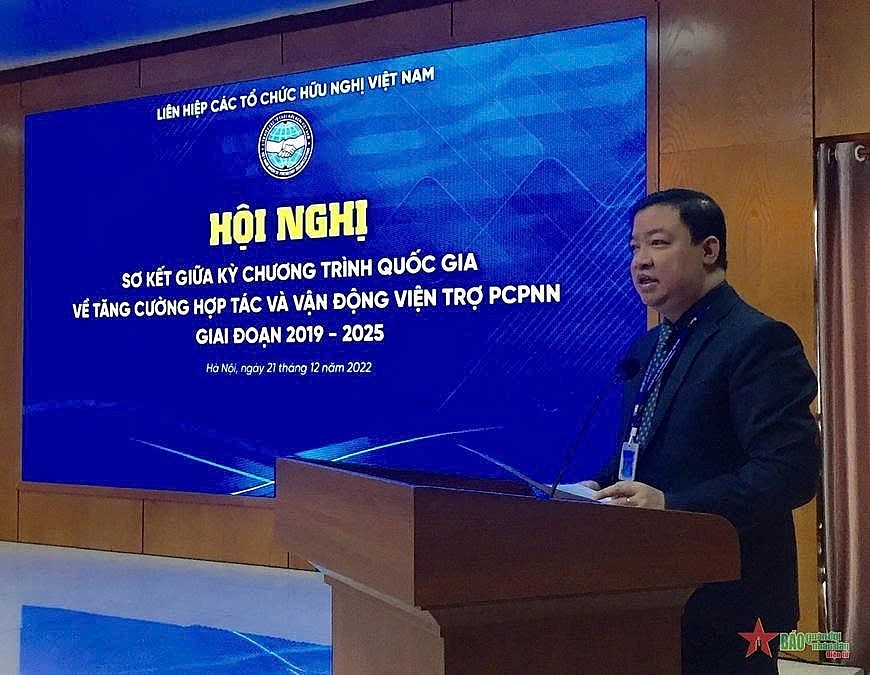 |
| The Viet Nam Union of Friendship Organizations has effectively implemented the work of mobilizing foreign non-governmental aid to serve socio-economic development and ensure human rights (Photo: People's Army Newspaper). |
According to incomplete statistics, from 1989 to the present, the mobilization of foreign non-governmental aid has reached approximately USD 6.3 billion, supporting essential sectors such as health, education, environmental protection, post-war recovery, gender equality, poverty reduction, and livelihood development for the population, especially vulnerable groups, including victims of Agent Orange, landmines, and persons with disabilities. In the past two years alone, the Viet Nam Union of Friendship Organizations has mobilized over VND 200 billion to support victims of natural disasters and floods; nearly VND 90 billion to build 1,400 houses in response to the Government’s program to eliminate makeshift and dilapidated shelters; and is currently continuing efforts to mobilize resources to participate in the construction of schools in communes in border areas. Member friendship organizations have also actively encouraged friends and partners to support the implementation of highly meaningful projects worth hundreds of thousands of USD, contributing to post-war recovery; assisting in building houses for poor households in localities affected by war and natural disasters; clearing hundreds of thousands of landmines and unexploded ordnance (UXO); and raising funds to support victims of Agent Orange and persons with disabilities. The above-mentioned efforts by the Viet Nam Union of Friendship Organizations and its member organizations have made positive contributions to improving and enhancing living conditions, thereby contributing to the protection of human rights in Viet Nam.
Second, organizing communication, advocacy and dialogue to increase understanding, consensus, sympathy and appreciation among international friends regarding the ensuring of human rights in Viet Nam, in a manner consistent with the country’s socioeconomic development conditions and cultural traditions. The Viet Nam Union of Friendship Organizations and its member associations have actively implemented external information and public diplomacy activities, promoting Viet Nam’s socioeconomic achievements, providing international friends with objective and factual information, and countering distorted narratives about Viet Nam’s human-rights record. Following the principle that “the truth speaks for itself,” the Viet Nam Union of Friendship Organizations and its members have organized numerous delegations of international friends to Viet Nam to attend foreign affairs events, participate in people-to-people exchanges, witness socioeconomic achievements firsthand, directly meet and speak with local people. At the same time, they have conducted effective communication, advocacy and dialogue at multilateral, regional and international forums, countering false and distorted viewpoints regarding human rights in Viet Nam.
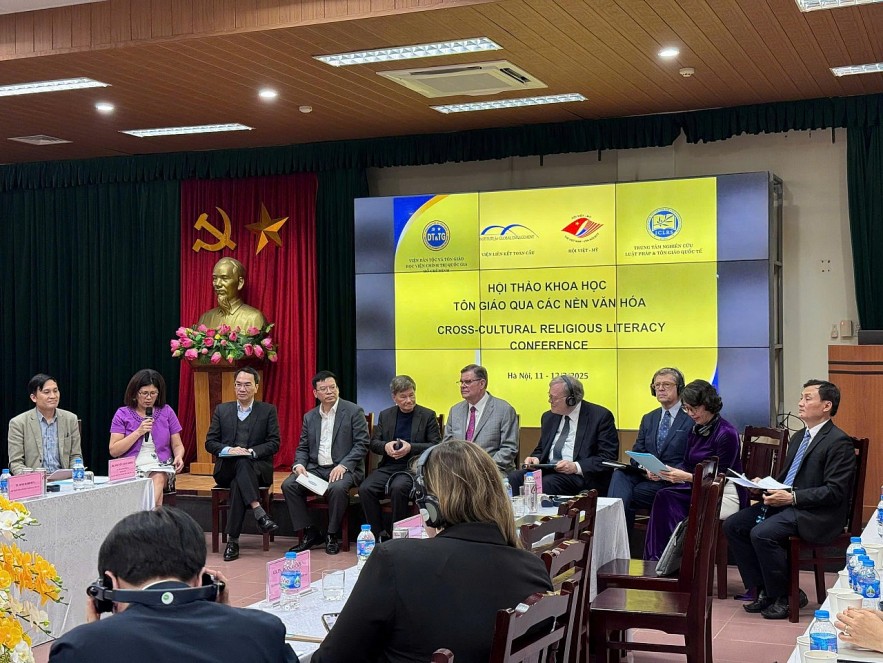 |
| Scientific conference “Cross-cultural religious literacy” organized by the Institute of Ethnicity and Religion - Ho Chi Minh National Academy of Politics in coordination with the Viet Nam Union of Friendship Organizations, the Vietnam-US Society and American partners, March 2025. (Photo: Viet Nam Union of Friendship Organizations). |
The activities organized by the Viet Nam Union of Friendship Organizations in recent years have generated positive effects, helping international partners and friends gain a clearer understanding of the situation and the work of ensuring human rights in Viet Nam, reducing differences and prejudices and limiting the negative impact of misinformation. Many international friends, including delegations of religious dignitaries, after witnessing Viet Nam’s development, its human-rights and social-security achievements, and its religious life, have significantly changed their views toward a more positive assessment of ensuring human-rights in Viet Nam.
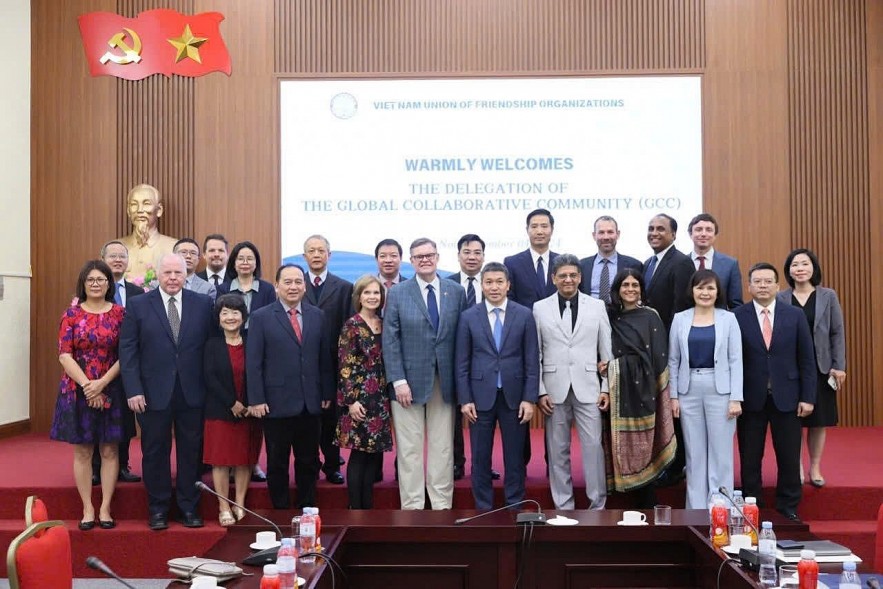 |
| The Viet Nam Union of Friendship Organizations welcomed a delegation of the Global Collaborative Community in December 2024. (Photo: Viet Nam Union of Friendship Organizations). |
Observing the enthusiasm and sense of national pride among the Vietnamese people, especially the youth, many international friends have drawn conclusions that are entirely contrary to the inaccurate or ill-intentioned information circulating abroad. They assess that Viet Nam is on the right development path and note that Vietnamese people, particularly the younger generation, are highly optimistic about the country’s bright prospects, unlike in many other places today, where people feel uncertain and pessimistic about peace and development. They have therefore encouraged the Viet Nam Union of Friendship Organizations and Vietnamese agencies to share more widely abroad about Viet Nam’s development model and trajectory.
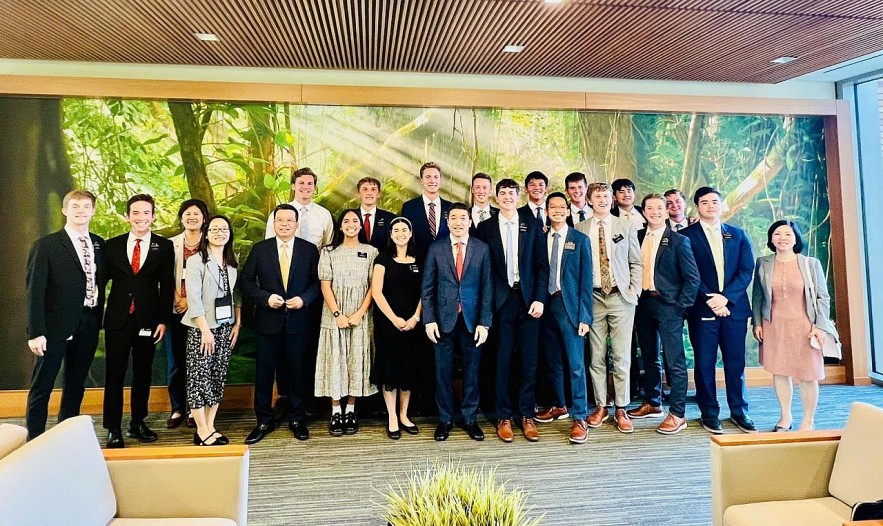 |
| The delegation of the Viet Nam Union of Friendship Organizations visited the Training Center of the Mormon Church and attended the International Conference in Utah, USA, October 2024. (Photo: Viet Nam Union of Friendship Organizations). |
Building on the proud tradition of its leadership and staff over the past 75 years, and promoting the recent achievements it has attained, the Viet Nam Union of Friendship Organizations and its member associations will, in the time ahead, continue to adhere closely to the Party’s directions, strengthening their role as the core and specialized force for people-to-people diplomacy. They will further contribute to ensuring and promoting human rights in Viet Nam by enhancing the effectiveness of mobilizing foreign non-governmental aid and partner support for poverty reduction and improvements in living standards. At the same time, the Viet Nam Union of Friendship Organizations will continue to uphold its role as a bridge of solidarity and friendship by organizing bilateral and multilateral people-to-people diplomacy activities both inside and outside the country, conveying objective and direct information to international friends so they may witness Viet Nam’s socioeconomic achievements and the efforts to improve people’s living conditions, thereby deepening international understanding, consensus, sympathy and support for Viet Nam in the field of ensuring human-rights.
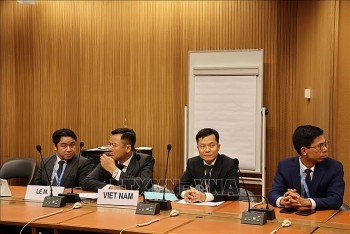 | Vietnam Makes Meaningful Contributions at 59th Session of the UN Human Rights Council From June 16 to July 8, the 59th Session of the United Nations Human Rights Council (UNHRC) took place in Geneva, Switzerland, drawing the participation ... |
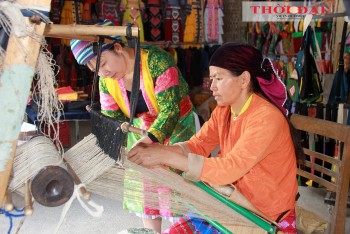 | Vietnam’s Humanitarian Progress in Multidimensional Poverty Reduction From a country with a household poverty rate of 5.2% in 2021, by 2024 this figure had dropped to just 1.93%. Through preferential credit loans, ... |
Recommended
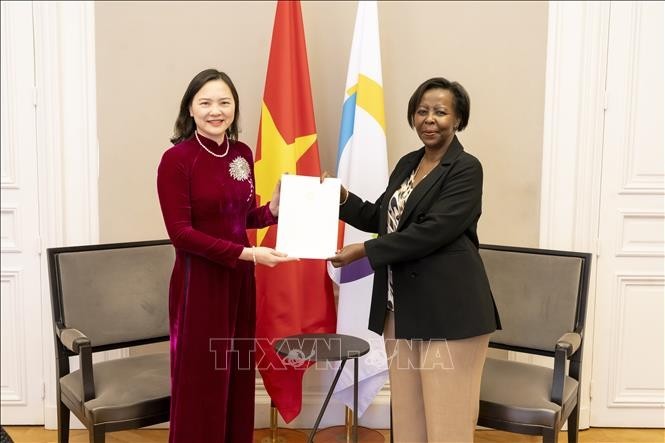 Friendship
Friendship
Vietnam Affirms Active Role in Francophonie Community
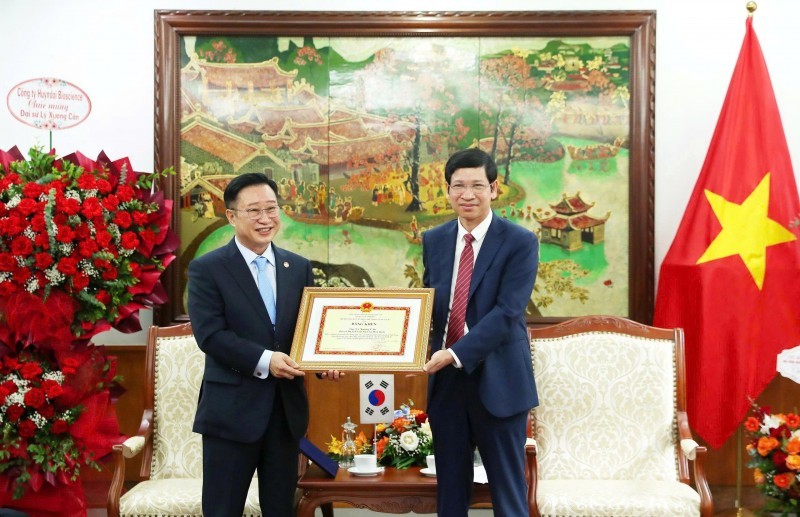 Friendship
Friendship
“An 800-Year Bond Between Vietnam and the RoK and My Return”
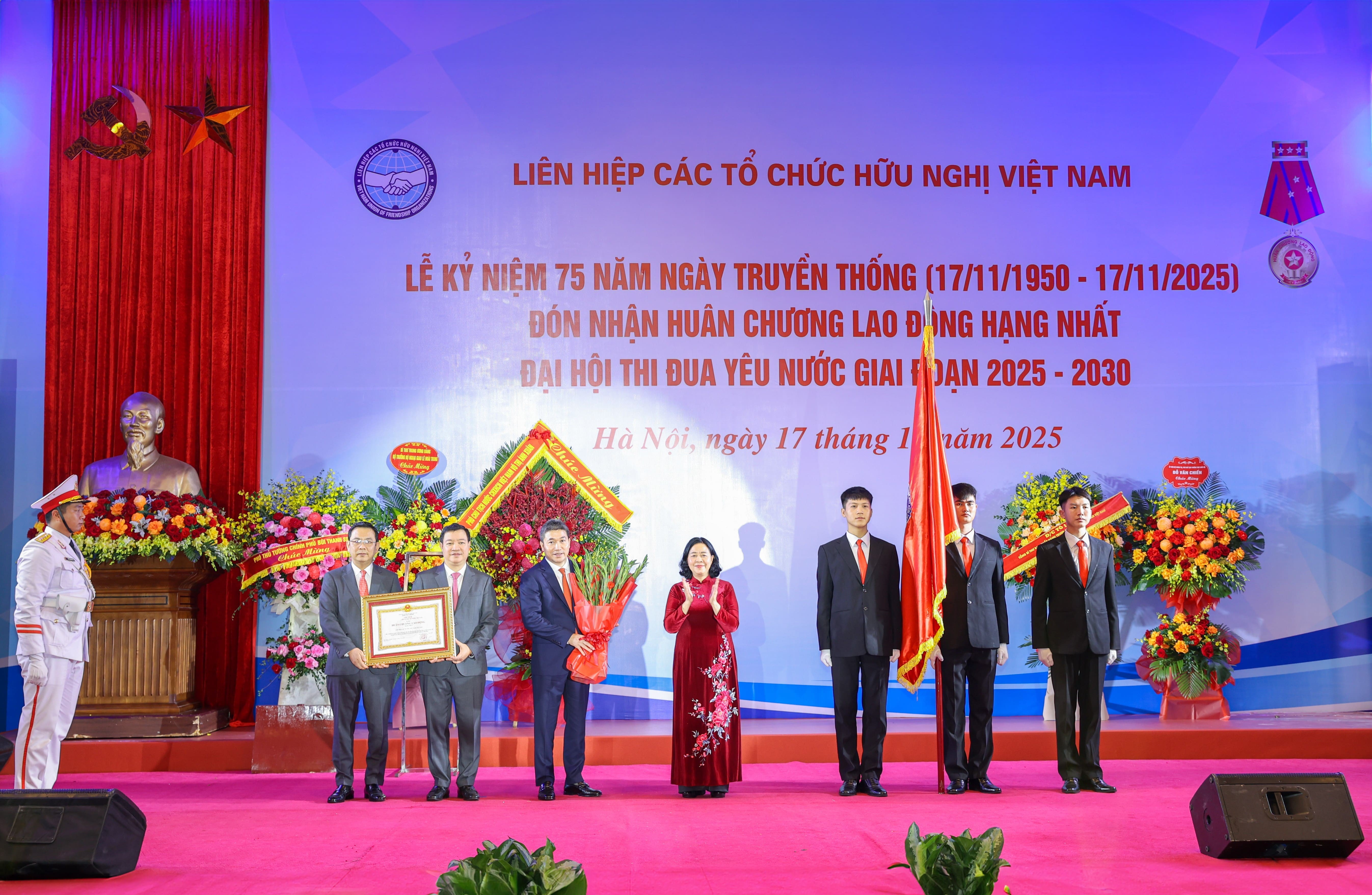 Friendship
Friendship
People-to-People Diplomacy: Change to Reach Further
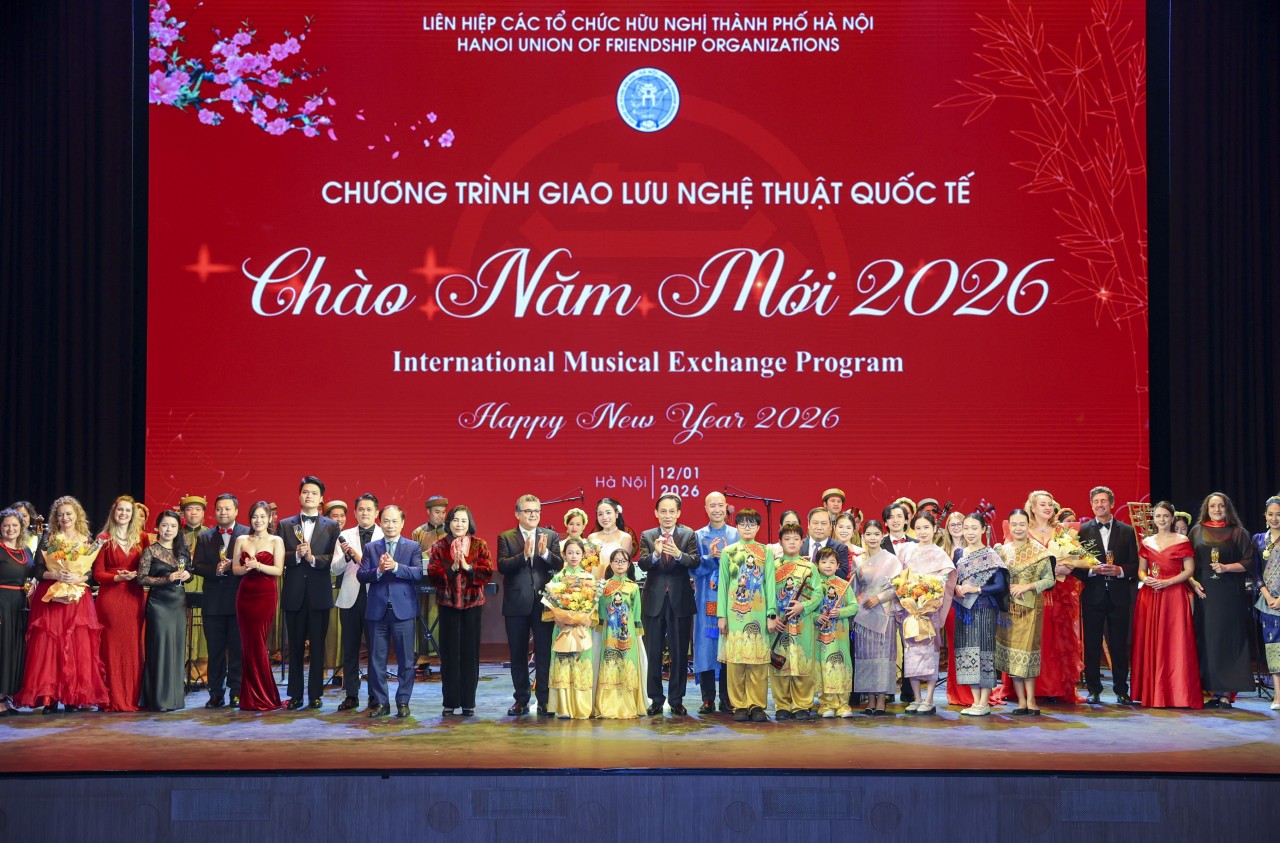 Friendship
Friendship
Hanoi Union of Friendship Organizations: Spreading Values of Peace in Heart of Capital
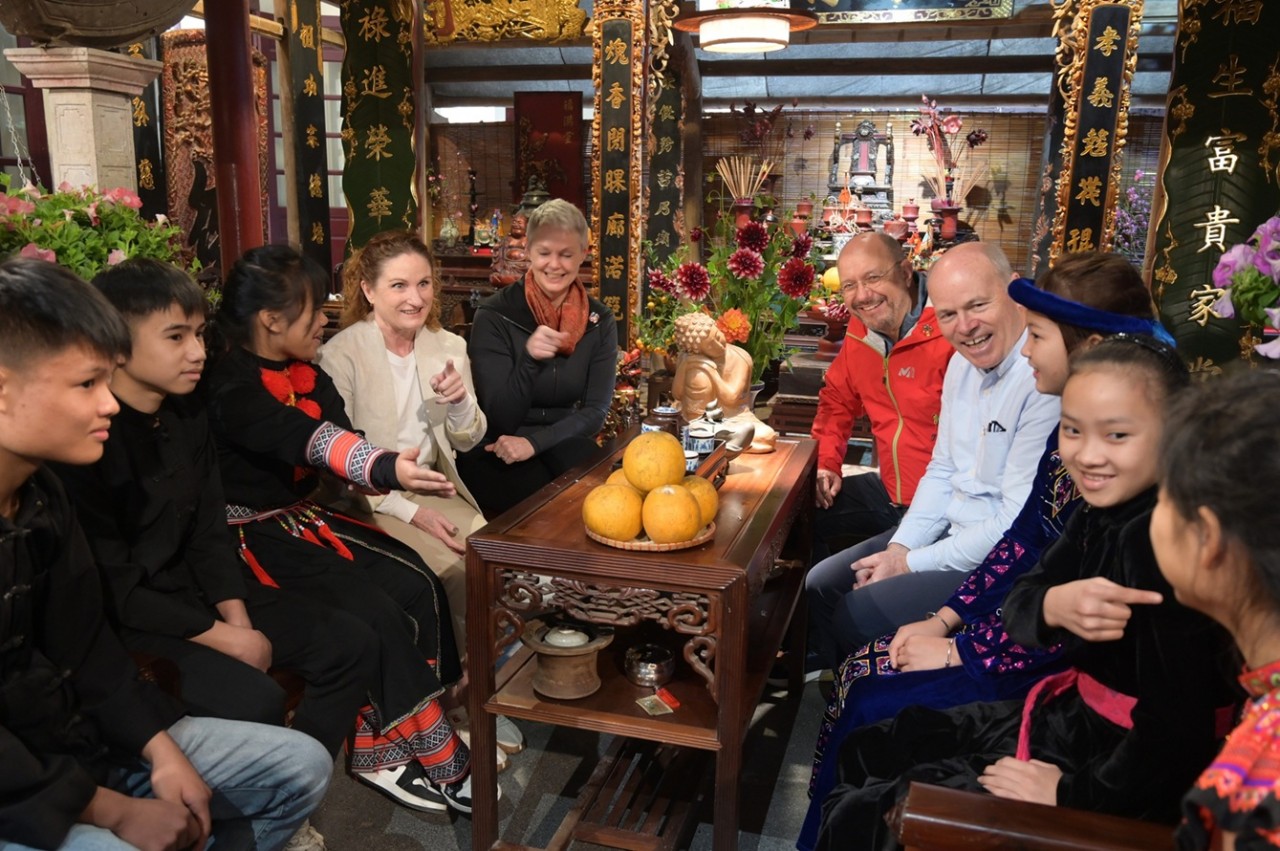 Friendship
Friendship
G4 Ambassadors to Vietnam Extend Greetings for the New Year of the Horse
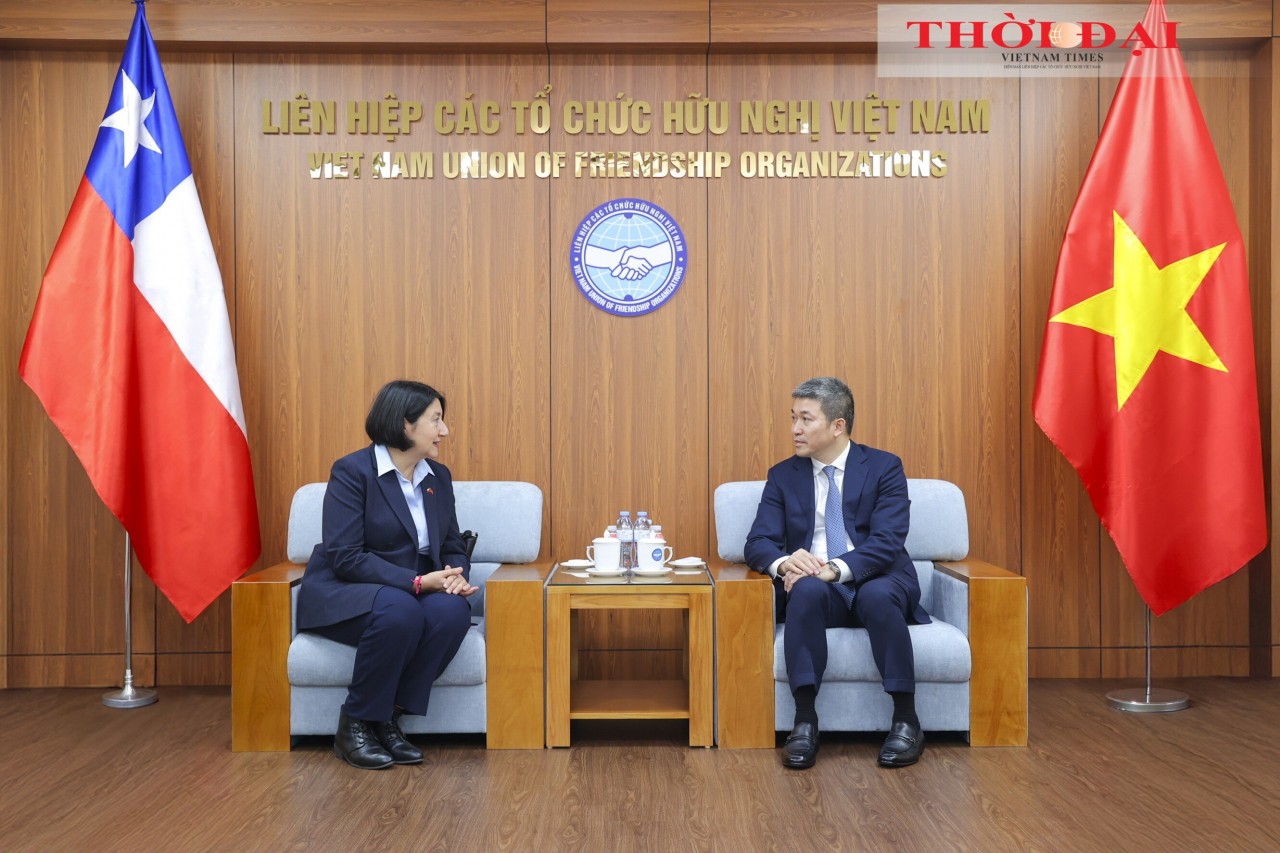 Friendship
Friendship
Promoting People-to-People Cooperation on the Occasion of the 55th Anniversary of Vietnam-Chile Relations
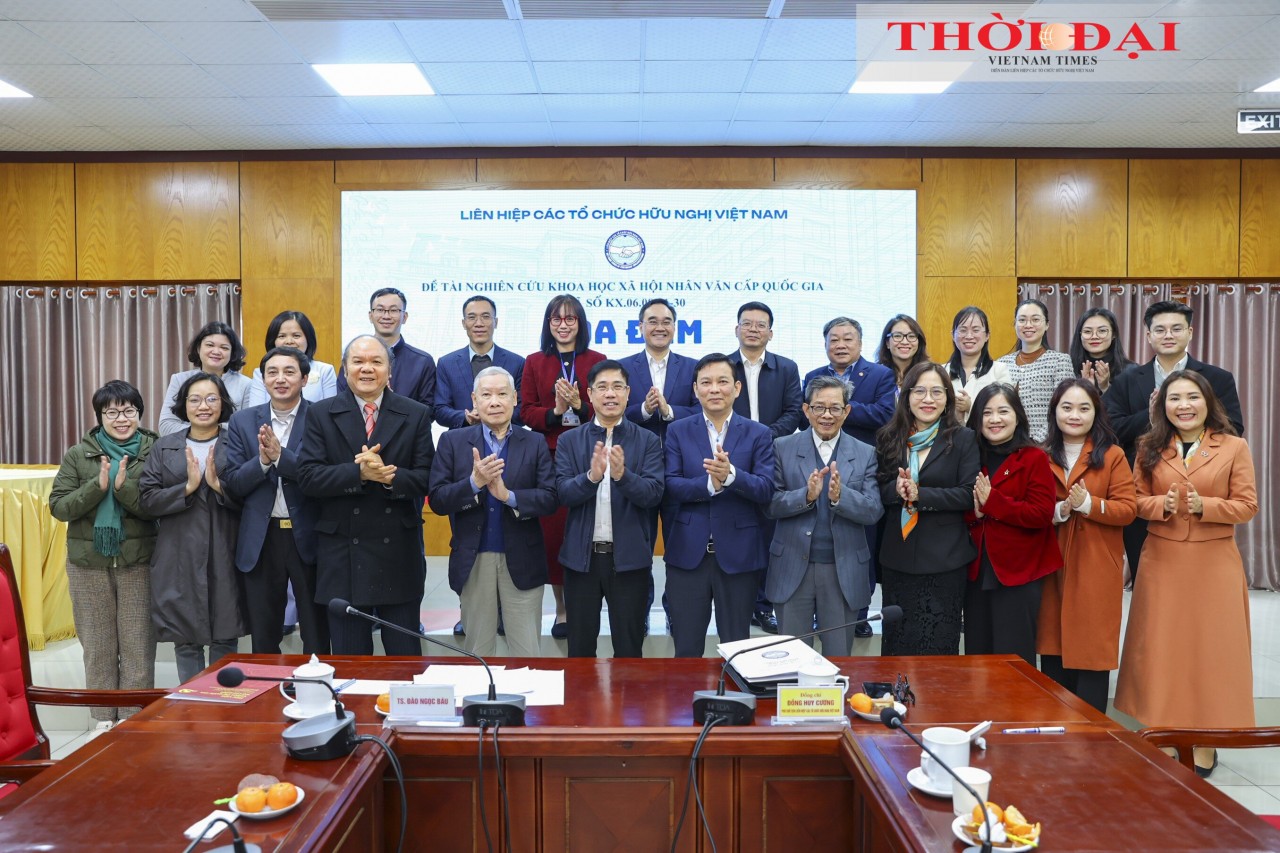 Focus
Focus
Seminar on “The Scientific Foundations of People-to-People Diplomacy in the World”
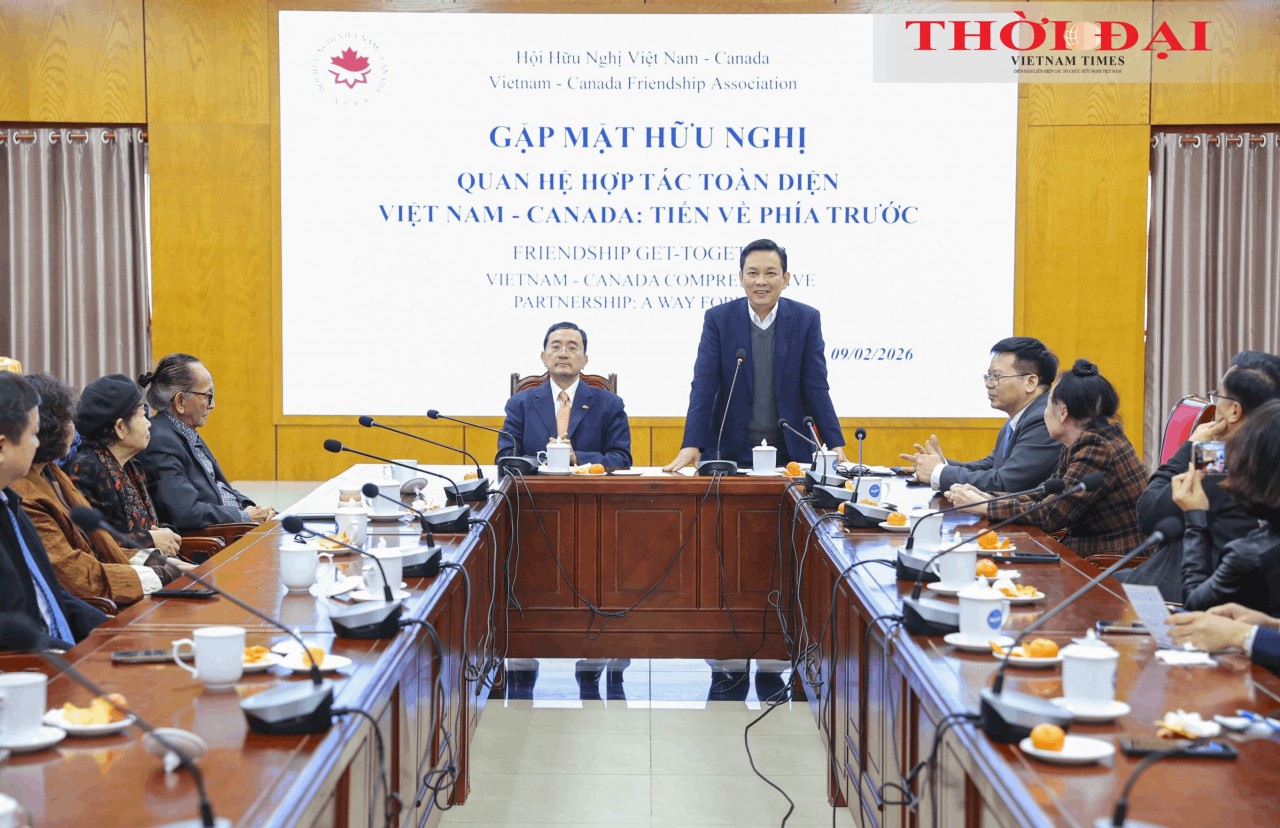 Friendship
Friendship

